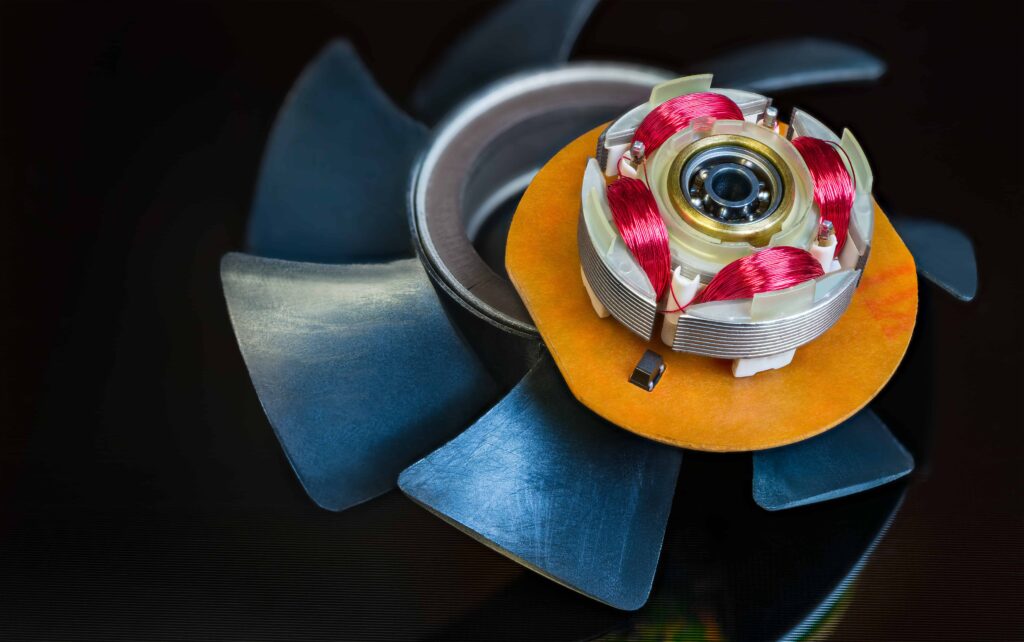Ball bearings for electric motors – plastic versions feasible?
Patrick Czaja | 6. September 2022
Hardly any industry can do without electric motors in the entire value-added process and the demands placed on products are constantly increasing. Similarly, the requirements for the various components of the drives are also increasing in order to ensure smooth production processes, including for the bearing of components, namely ball bearings for electric motors.
But what is an electric motor anyway? An electric motor converts electrical energy into mechanical power. In conventional drives, a magnetic conductor spool (usually made of copper) is fed with current so that an electromagnet, also known as an anchor, can rotate within this spool. In this way, the desired component can be driven with the aid of a shaft, which is connected to the anchor. The shaft is supported on classic ball bearings.

Our ball bearings are made from lubrication-free materials and can help ensure the reliability of the actuators. Especially for applications with low load and rotational speed, xiros ball bearings for electric motors offer significant technical advantages, as, among other things, the drive torque is very low. As a result, less energy is required, which saves resources and the environment, which is becoming increasingly important today. In addition, plastic is significantly lighter than metal, corrosion-free and resistant to dirt and dust.
Thanks to our diverse range of materials, ball bearings are also available in insulating or conductive versions, so that they can be used in areas with different requirement profiles. Our ball bearings for electric motors are therefore a real alternative to comparable metal solutions.
